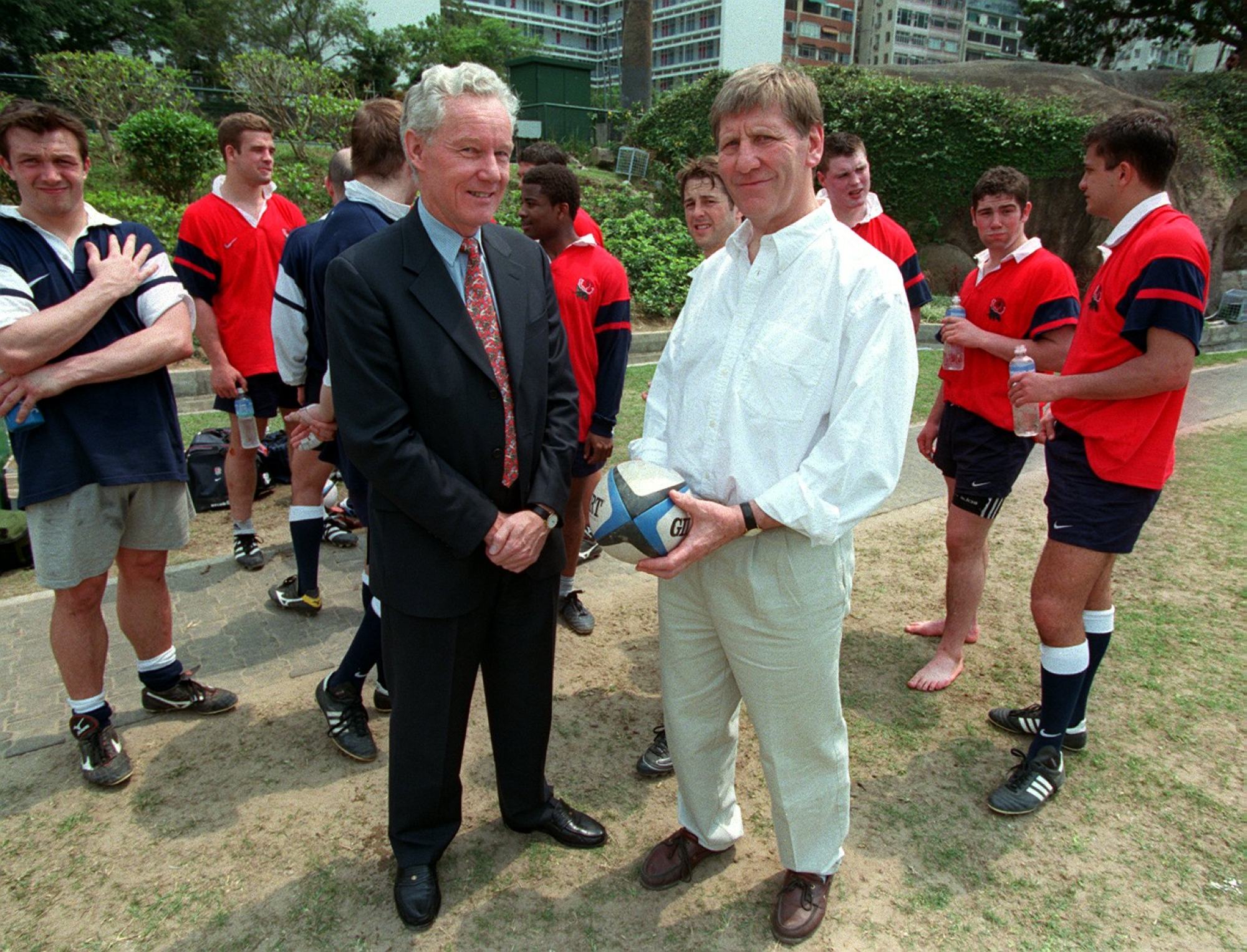
Hong Kong Sevens: ‘It was amateurish but fun,’ says former England star Bob Lloyd of 1976’s first edition when he led hosts to Plate glory
- The Cathay/HSBC Hong Kong Sevens takes place from April 5 to April 7 at Hong Kong Stadium
- Lloyd captained Hong Kong in the inaugural tournament, staged at Hong Kong Football Club in 1976
Were it not for an intransigent college teacher, and the wanderlust of English rugby chiefs, Bob Lloyd would never have moved to Hong Kong.
More than 50 years later, the former England centre is woven into the city’s fabric. Not that you can take all of his country of origin out of the boy. At Hong Kong Football Club (HKFC), where he is revisiting memories of captaining the city’s team at the same venue in the inaugural Hong Kong Sevens in 1976, Lloyd orders an English breakfast tea.
Leading Hong Kong may not have matched playing for England, but he had silverware to celebrate at the first Sevens, contested over one day. The cosmopolitan hosts won the Plate, beating Tonga 19-16 in the final after Ian Duncan kicked an extra-time penalty.
“We did not celebrate for too long,” Lloyd said. “The tournament was a bit amateurish, and losing certainly would not have ruined our day. We were just scratching the surface, and it was fun, but very few were watching.”

In his mind’s eye, Lloyd can still see Fiji’s huge Ilaitia Tuisese running like the wind in Hong Kong’s pool-stage defeat.
Fiji would lose their semi-final to the Wallaroos, from Australia, who were beaten in the final by New Zealand’s Cantabrians, but the Fijians are sevens kings in Lloyd’s eyes. He likes to playfully tell Duncan, who coached Fiji’s 1984 Cup winners, that anyone could have done the job. “They do not need a coach,” Lloyd said.
Duncan responds to his friend’s teasing by pointing out Hong Kong’s struggles under Lloyd’s management in the 1977 tournament.
But Lloyd was some player. A dashing centre who spent 12 years with Harlequins, he moved to Hong Kong in 1973.
He sources little enjoyment from 15s today, partly over safety concerns. He recalls an awful episode from his own time. In 1967, playing for Midlands, London & Home Counties against New Zealand, Lloyd’s teammate Danny Hearn broke his neck in a tackle and was paralysed for life.
Eight years ago, Lloyd was among the authors of a paper submitted to ministers in Britain, calling for the “removal of the collision element of rugby within British school systems”.
It is darkly ironic that the match that changed Hearn’s life also altered Lloyd’s. He scored a try in defeat, earning selection for England against the All Blacks the following week. Introduced to the queen before kick-off, Lloyd got both England tries in a 23-11 loss. He added a try for the Barbarians, in another losing cause, playing alongside Welsh greats Gareth Edwards and Barry John.
New Zealand conceded four tries to the English on that tour, and Lloyd bagged the lot. He played all four Five Nations matches the next year, but selection for the 1968 Lions tour of South Africa posed a problem. The three-month trip coincided with his civil engineering exams at Hatfield Polytechnic.
Lloyd recalls the day he got in his car and “wept like a child, because I knew I was not going to go”.
Terry O’Connor, the Daily Mail rugby correspondent, wrote: “The loss of Lloyd would be a serious blow for the Lions. He is a runner of exceptional talent, with a superb change of pace and clever sidestep.”
Lloyd was not chosen for the next Lions tour, in 1971. Despite missing a host of leading players, English bosses arranged matches in Japan, Singapore, Hong Kong and Sri Lanka.
“Second-string Bob had to go to Japan,” Lloyd said. He captained England to victory there, before being enraptured with the next two destinations.
“I thought, when I qualify, I might work in either Singapore or Hong Kong,” Lloyd said. “We played at the old [HKFC] ground, and the life of the club looked idyllic, apart from a notice on the bar stating ‘dogs and women not allowed’. Hong Kong seemed the place to be.
“True enough, as I was admitted to the Institution of Civil Engineers, I saw an advert for expat engineers at the Hong Kong Public Works Department.
“I was interviewed in early 1973, and moved here that August. It was a complete divorce from Britain. My wife was not 100 per cent happy with the decision, but she said only a couple of weeks ago what a wonderful decision we made.”
Lloyd was closely involved with construction of the Eastern and Western harbour crossings and the old Kowloon-Canton Railway.
He was playing for HKFC within a month of arrival and by last year his 50-year anniversary granted him free membership.

The Hong Kong Sevens, meanwhile, “just gained momentum, and has a more important role in people’s lives today”.
He will be at Hong Kong Stadium this weekend as a guest of Hong Kong China Rugby, but does no longer has the stamina for the increasingly long days.
“I pick and choose my matches,” he said. “I went home to watch the finals on TV last year.
“It is a wonderful concept, and brings people together. If they are not having fun, they can turn around and watch the rugby. For me, sevens is more attractive than 15s, there is more movement and excitement.”
Hong Kong is one of eight stops on the elite HSBC SVNS Series.
“I am biased, but in my book, Hong Kong is the best of them all,” Lloyd said. “It all started here, and I am very, very proud I was part of it.”

